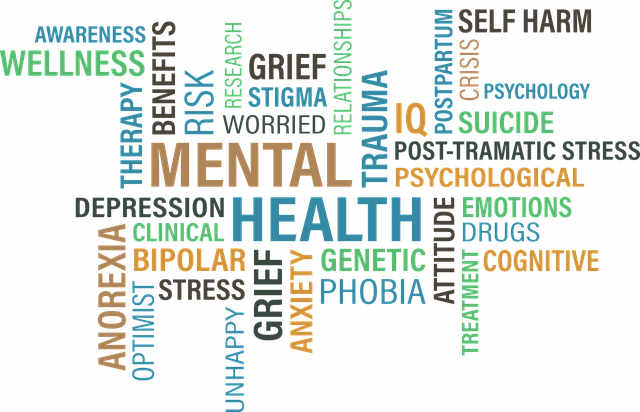 |
| What is Anorexia? |
Hello and welcome to the Anorexia Blog! Here you will find important information related to anorexia and eating disorders. Our aim is to spread awareness through the blog posts presented here and help people understand this disease. Our blog has detailed information about Anorexia home remedies and here we have collected some important questions that you might have in your mind. that we will discuss at the end of the post in the FAQ session.
What is Anorexia?
Anorexia is a mental disorder characterized by distress in eating and preoccupation with weight loss. In this condition, the person reduces the amount of food consumed, exercises excessively, or skips food altogether in order to control their body weight. Alongside this, an individual with anorexia encounters trouble to eat and shows actual side effects like slenderness, tight and dry skin, balding, and so on. The condition also has mental symptoms such as mood swings, feeling like a narcissistic person, and loss of self-confidence. Anorexia requires an organized treatment and can be addressed with the help of a mental health specialist.
Causes of Anorexia
Anorexia can be influenced by a number of recognized causes, which may include psychological, physical, and social factors. Here are some reason of anorexia:
Health concerns: You may have personal health concerns, such as a sense of perceived danger to the body, suspicion of thinness, and feelings of attractive body micro-negotiations.
Mental problems: Contrary to mental balance, excessive stress, depression, self-loathing, lack of independence, lack of self-confidence, and social pressure can contribute to the development of anorexia.
Physiological effects: Exercise, a desire to control oneself, attractiveness beliefs, child-related problems, and doubts about reincarnation can also be valid factors for anorexia.
Social influences: Social beliefs, commercial images, media, social networks, family influences, and competition in competitions can also lead to anorexia.
Heredity: Heredity can play an important role in the development of anorexia, as can family members with a predisposition to the disease.
What are 4 signs of anorexia?
Anorexia is a serious mental health problem characterized by a preoccupation with eating and weight loss. Here we have listed the 4 main signs of anorexia:
Weight loss: In anorexia, the person's weight is less than normal. The person avoids overeating to maintain their body weight, exercises excessively to lose weight, and skips meals altogether.
Distress in eating: A person with anorexia experiences distress in eating. They drastically reduce the amount of food they eat, avoid eating for extended periods of time, or refuse to eat certain foods.
Physical symptoms: A person with anorexia has physical symptoms, such as thinness, tight and dry skin, hair loss, and cold extremities.
Mental symptoms: A person with anorexia may have mental symptoms, such as mood swings, delusional feelings of being fat or thin, excessive health concerns, feeling self-consciousness, and low self-confidence.
If you recognize the symptoms of anorexia in yourself or someone else, it is important that you consult a mental health specialist and receive appropriate treatment.
Can anorexia be treated at home?
Anorexia is an eating disorder in which a person refuses to meet their food needs. This can be due to emotional, physical, and social influences. If you are suffering from anorexia and are looking for home remedies to treat it, here are some useful tips:
Follow a regular diet: Following a regular and healthy diet will provide your body with the necessary nutrition. It is important to have morning breakfast, lunch, evening meal, and small snacks in the last week.
Food rich in freshness and nutrition: The diet should have a good amount of nutrients. Fruits, vegetables, protein-rich foods, eggs, yogurt, walnuts, and nuts will give you nutrition.
Ginger: The medicinal properties found in ginger can help you digest your food debris. You can consume ginger tea, ginger juice, ginger juice, or ginger pieces.
Basil: Basil has natural sedative properties that may be useful for anorexia. You can dry Tulsi leaves in the sun and consume the ground powder with a teaspoon of honey.
Fennel: Fennel is known to be calming, increase digestion and help digest food. Make fennel water and drink it daily in the morning.
Fenugreek: Fenugreek is a home remedy that can help digest food and reduce indigestion. Soak fenugreek seeds in water overnight, and then drink that water the next day.
Arjuna Bark: The juice of Arjuna bark can be helpful in reducing indigestion. Keep it soaked in water, and filter that water at night and drink it.
Coriander: Coriander can help increase digestion and stimulate the urge to eat. You can chew coriander leaves or add them to your food.
Healthy Milk: Healthy milk provides energy and nutrition to the body. You can take cow's milk, buffalo's milk, or Navneet.
Good Sleep: Prioritize and try to get good sleep from time to time. It will improve your eating process and strengthen your physical health.
What is anorexia?
Anorexia is an eating disorder in which a person refuses to eat the amount of food needed to meet their food needs. This can be due to emotional, physical and social influences.
What are the symptoms of anorexia?
Symptoms of anorexia may include physical symptoms (such as weight loss, dry skin), a change in essential eating habits, a preoccupation with the person's eating, a sense of control over the amount of food consumed, mental stress, and anxiety.
What are the causes of anorexia?
The causes of anorexia can be varied, such as misconceptions about diet, mental problems, self-deprecation, affective attractiveness, family stress, pessimistic thoughts, etc.
What are the treatments for anorexia?
Treatment for anorexia involves collaboration with mental health experts, trained dietitians, therapy, medications, family, and a support community. This can include a mental, physical, and occupational phase.
What can be done to prevent anorexia?
Maintaining a healthy diet, exercising regularly, getting enough sleep, seeking mental health care, seeking support from health organizations and support communities, positive support, and communication may be necessary to prevent anorexia.
Can anorexia be completely cured?
Yes, in most cases, anorexia is possible and can be completely cured. It demands treatment, support, and patience, but is possible with the right measures.
Is anorexia a serious condition?
Yes, anorexia can be a serious condition that can affect lives. It can cause serious physical problems and affect the mind, which can reduce the person's quality of life. Therefore, it is important to seek timely treatment.
Here we have answered some important questions related to anorexia. If you have any other questions or need more information, please ask us. We would be happy to assist you!





















0 Comments